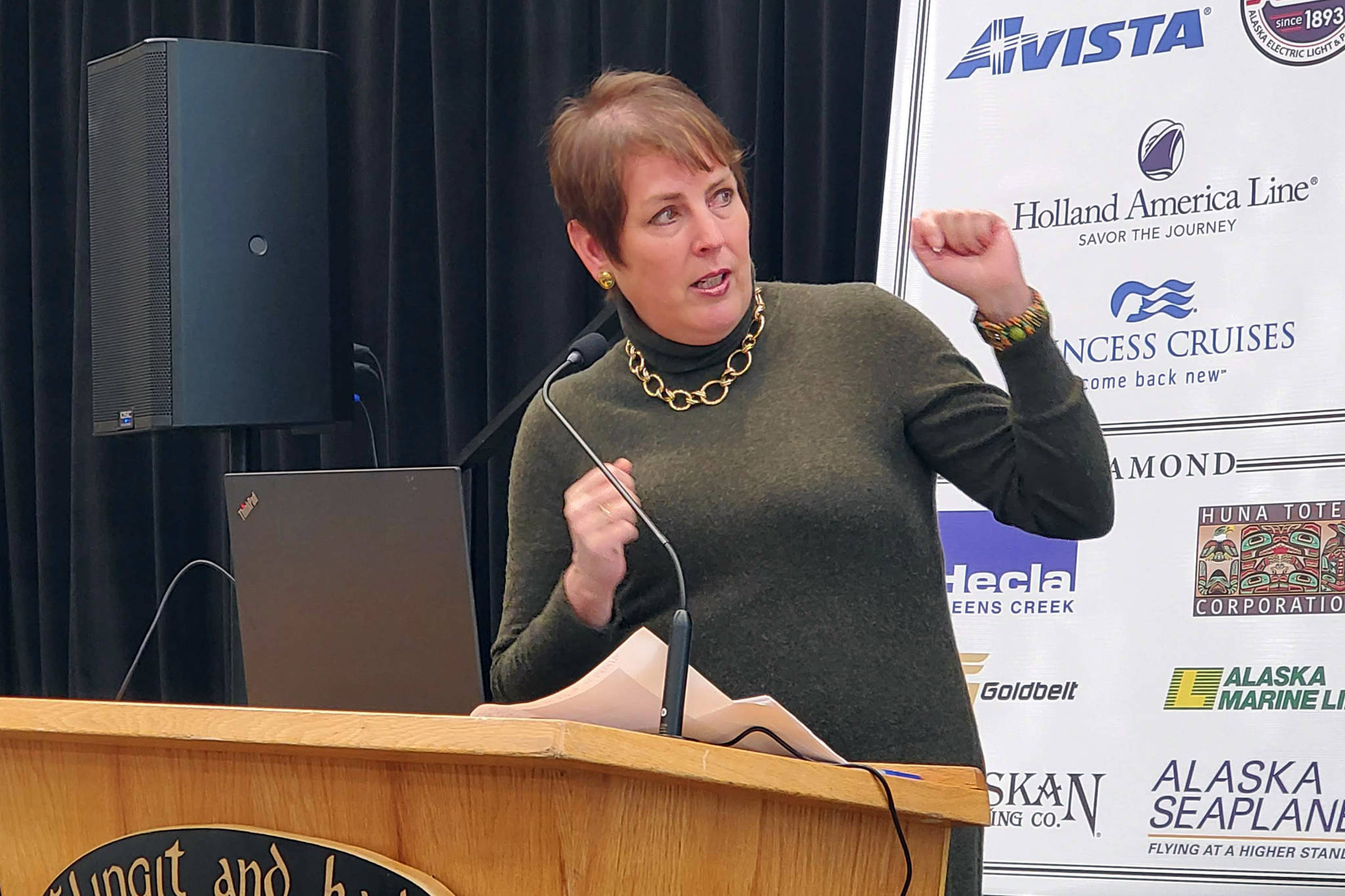COVID-19 isn’t entirely bad news for the Alaska Permanent Fund, said Angela Rodell, chief executive officer of the Alaska Permanent Fund Corporation.
A slumping stock market amid concerns regarding the spreading virus contributed to a $2.8 billion loss — $65.1 billion from $67.9 billion — last week for the Permanent Fund, according to Alaska Permanent Fund Corporation. However, Rodell said Thursday during a Greater Juneau Chamber of Commerce luncheon at Elizabeth Peratrovich Hall, that the volatile market also offers opportunities for the state-owned corporation that manages the fund.
“We had been holding cash in short-term bond in anticipation of a slowdown,” Rodell said. “We have since last week been putting money back into the stock market and using it as a buying opportunity. We believe it will pay off for us.”
[Alaska raises its coronavirus preparedness level]
Rodell said after the meeting that the U.S. economy continues to have strength but did not identify a specific area in which investments were made.
“When you look at certain sectors and technology and things like that, it just makes sense that when you thought valuations were too high and that they feel more normal and in line with their price-earnings forecast and things like, that now’s the time to get in because things are more stabilized, and they’re more rational on that front.”
She also said it’s not yet known how long the virus will negatively affect economic markets, and it’s possible it could be for a relatively short period of time.
“It’s not clear how long or deep this effect will be,” Rodell said.
She said looking back to the early 1900s, the Spanish flu caused a similar initial panic but did not substantially hurt economic activity in the long term.
The Spanish flu had a mortality rate of about 2.5%, while the coronavirus currently in the news is reported to have a mortality rate of about 2.3%, according to early studies. The Spanish flu was “the most severe pandemic in recent history,” according to the Centers for Disease Control and Prevention.
“We’re hopeful that this will mirror that,” Rodell said referencing the economic impact of the earlier disease. “That it will be much more emotional than economic, and that we’ll see economic activity revitalize itself in the coming months as people get more and more comfortable with what’s happening and how we’re responding to the virus.”
• Contact reporter Ben Hohenstatt at (907)523-2243 or bhohenstatt@juneauempire.com. Follow him on Twitter at @BenHohenstatt

